
Growing pains at Swiss as pilots win increase
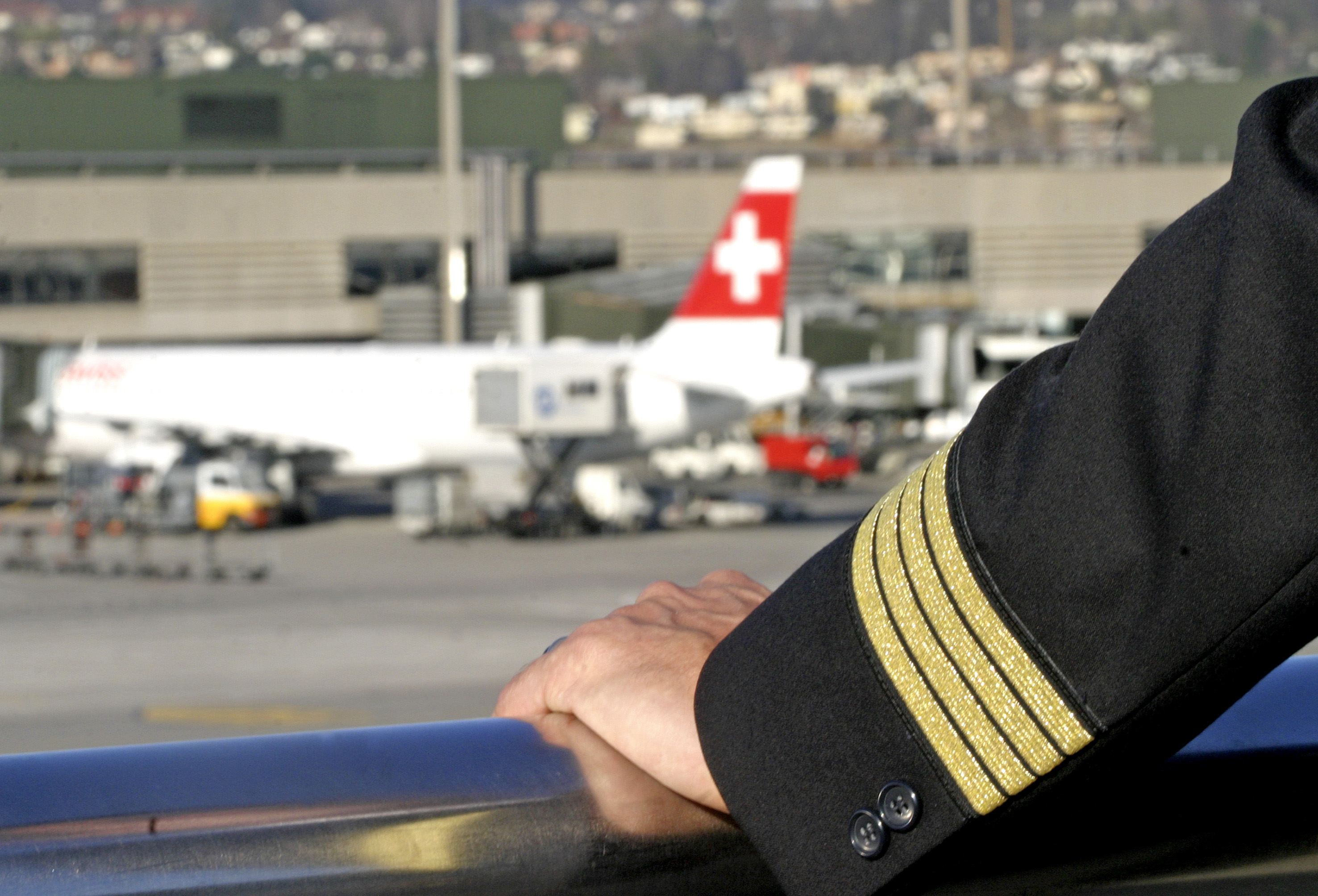
After months of wrangling, Swiss International Air Lines and unions representing its 960 pilots have agreed to a new collective labour agreement.
The last-minute deal, agreed on Saturday, headed off rumours that pilots were planning to call a strike to coincide with Swiss summer holidays starting next week.
A spokesman for Swiss, Jean-Claude Donzel, said the company had agreed to increase the pilots’ overall salary package – including holidays, days off, pension contributions and salary – by 20-22 per cent.
The airline’s previous offer to pilots, which allowed for an overall 15 per cent increase, was unacceptable to pilots, who were demanding an increase of 30 per cent.
But the deal itself remains a preliminary one and must still be approved in a vote by the pilots.
“The differences were reduced little by little until we found a common denominator,” Aeropers board member and Swiss pilot Thomas Steffen told the Swiss news agency. “We could not have waited indefinitely. The pilots need better working conditions.”
Pilots at Swiss have long complained that they are underpaid compared with their colleagues at Lufthansa, owner of Swiss, while a steady expansion programme at the airline had put added pressure on staff numbers.
Pilot shortage?
A lack of pilots meant that Swiss pilots had accumulated some 10,000 days of untaken leave, Steffen said.
In addition, the cancellation of a flight from Zurich to Sao Paolo in June was blamed on the inability of the airline to find a replacement for a pilot who had called in sick – evidence, the union said, of a shortage of pilots.
Donzel said the cancellation of a flight due to a pilot calling in sick was “normal” in the operation of an airline.
“I do not accept that we are just lacking in pilots. We have a tight situation at the moment,” said Donzel, pointing out that the airline had added new routes and expanded existing routes over the past year.
Matthias Mölleney, former head of human resources at the now defunct Swissair, said the shortage of pilots at Swiss was a “real problem” and backed Steffen’s claim of high levels of leave owed to pilots at the airline.
He said the shortage could be traced back to the airline retrenching pilots during times of downturn.
“The pattern goes back even to the 1960s and it says that if an airline would have hired young pilots exactly at the deepest downturn when times are extremely tough, then they would have them exactly when they needed them,” Mölleney said. “But the first reaction when times are tough is to shut down the pilots’ school and not employ any new pilots.”
Growing pains
Grounded by bankruptcy a decade ago, Swiss has seen a remarkable turnaround since its takeover by Lufthansa in 2005, with its full-year profit more than doubling to SFr368 million ($435 million) last year.
The carrier will add a further seven planes to its fleet of 82 by the end of 2012.
“There are clear signals in the company that we are expanding. But of course if you have more airplanes, you need more pilots, and the problem is that you can’t just hire them from one day to the other,” Donzel said.
Swiss has launched a recruiting drive to attract and train new pilots. According to its first quarter results statement, the company plans to employ 200 new cabin crew and 100 new pilots before the end of the year.
“Our school for training pilots is fully booked,” he said. “We are at high speed training pilots but this may be not enough and that is why we are looking for other solutions.”
The Swiss Aviation Training School has capacity of around 90 places a year for a two-year course. Donzel said that because instructors are also pilots for Swiss, this adds to pressure on staff numbers.
Solution?
Aeropers said in a statement the preliminary deal agreed with Swiss was “an important milestone on the road to eliminating the pilot shortage”. It said the improved salary and working conditions would entice more young professionals to become pilots.
But Donzel said a deal could take “several weeks or even months” to be finalised.
He said although certain points had been agreed upon, “obstacles” such as raising the retirement age or the recruitment of experienced pilots at competitive rates rather than at the union-mandated lowest “seniority” level, which would help alleviate the shortage of pilots, remained unresolved.
Mölleney said pilots at all major airlines were both unionised and operating under a seniority salary structure system, which ensured there was little opportunity for airlines on the whole to employ experienced pilots outside the company.
He added that a good relationship with pilots was important for the success of the airline.
“The speciality of pilots, if you compare them with other groups like ground personnel, is that they cannot change. Pilots don’t leave,” he said.
“It’s a people business. It’s built on mutual trust and if they are not managing to create trust between the pilots union and management and vice versa, then things become very difficult.”
Born out of the wreckage of the bankrupt Swissair and regional carrier Crossair, Swiss International Air Lines started flying in 2002.
Having been forced to cut its fleet (to 74) and staff by a third a year later, the struggling Swiss was saved by Lufthansa in 2005.
But Swiss now appears to be on solid ground, booking full-year profits of SFr368 million in 2010, compared with SFr146 million in 2009.
Swiss flew 14.2 million passengers in 2010 – up 3% on the previous year. Seat load factor of these flights increased from 80.1% in 2009 to 82.3% in 2010.
Total flights operated increased 3.6% to 141,405 flights in 2010.
At the end of March 2011, the company had a global workforce of 7,521, around 100 more than for the same period a year earlier. The company plans to recruit a further 200 cabin crew and 100 future pilots before the end of 2011.
From 2012, the airline will expand its fleet of 81 planes with delivery of five Airbus 330-300s, two Airbus 221s and two Airbus 320s.
The collective labour agreement governing conditions for more than 900 Swiss pilots expired in December. The agreement was extended until March in an attempt to find an agreement between the two parties.
Pilots were demanding an overall salary package increase of around 30 per cent. Offers of ten and 15 per cent increases by Swiss were reject.
When negotiations failed, unions requested the matter be sent to the arbitration court of the Zurich Chamber of Commerce for mediation. After several further weeks of negotiations, the court ruled the two parties could, and should, negotiate a deal between themselves. A decision rejected by the union, which withdrew from discussions.
A preliminary agreement was finally reached on July 2, with unions accepting a rise of around 22 per cent on wages and conditions. The deal must still be approved by pilots in a vote.

In compliance with the JTI standards
More: SWI swissinfo.ch certified by the Journalism Trust Initiative





























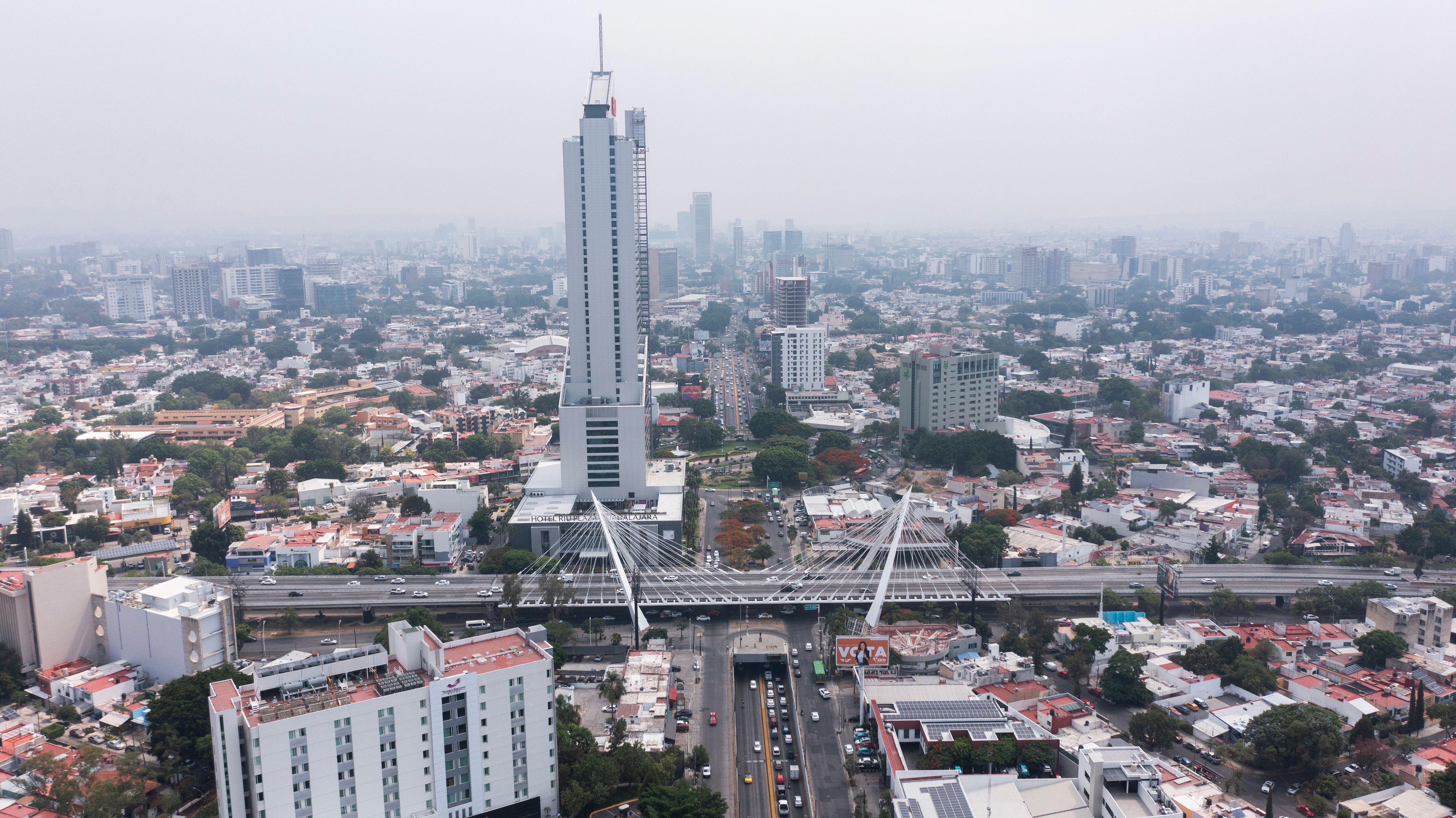



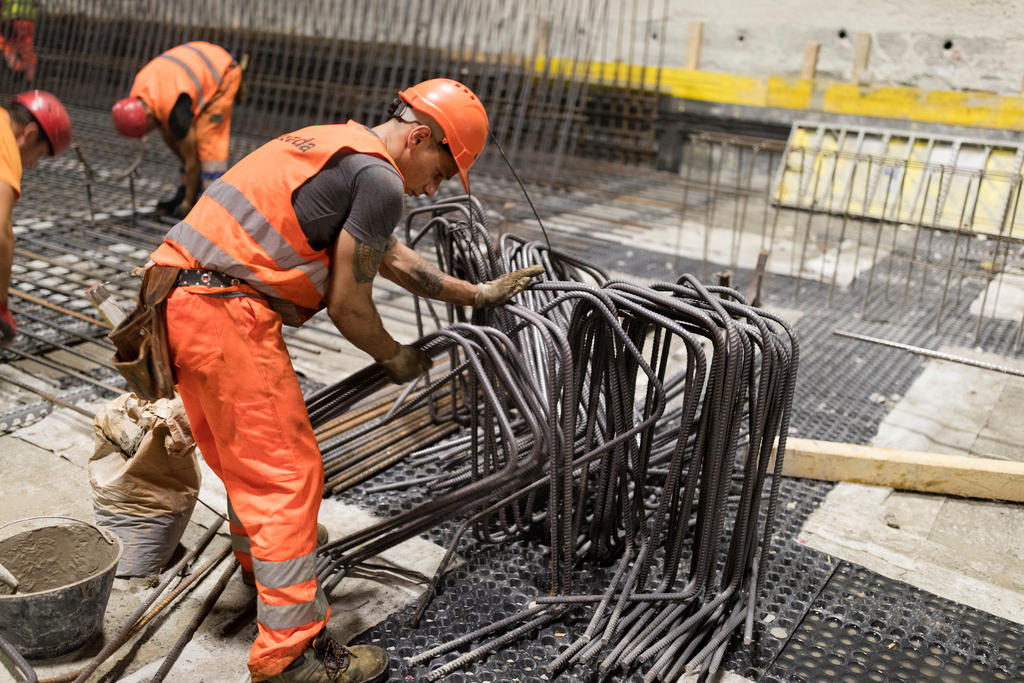


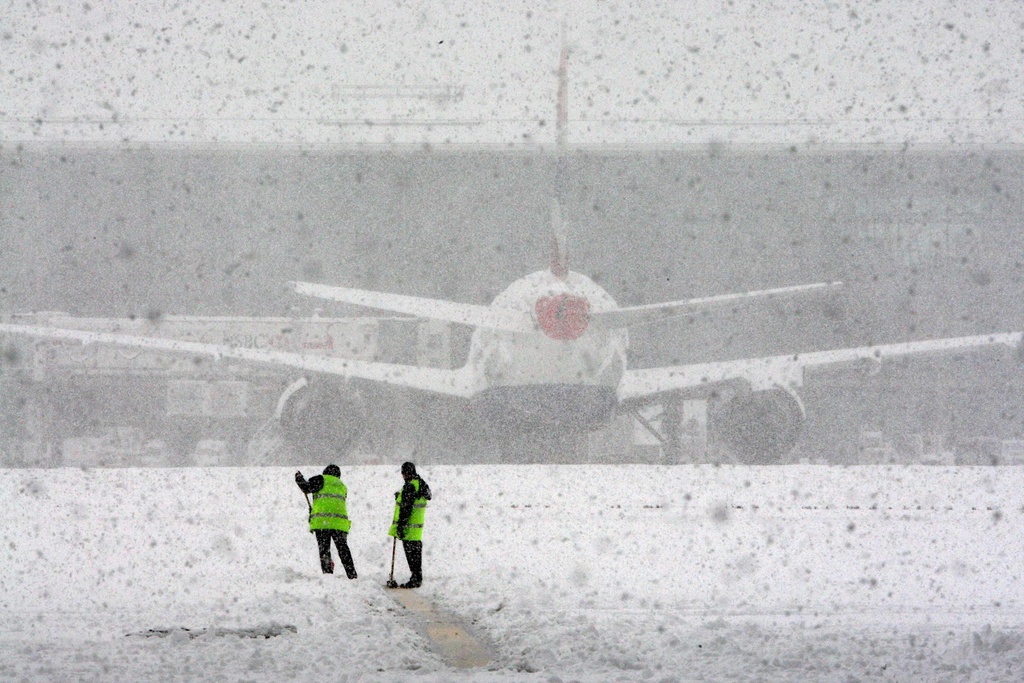
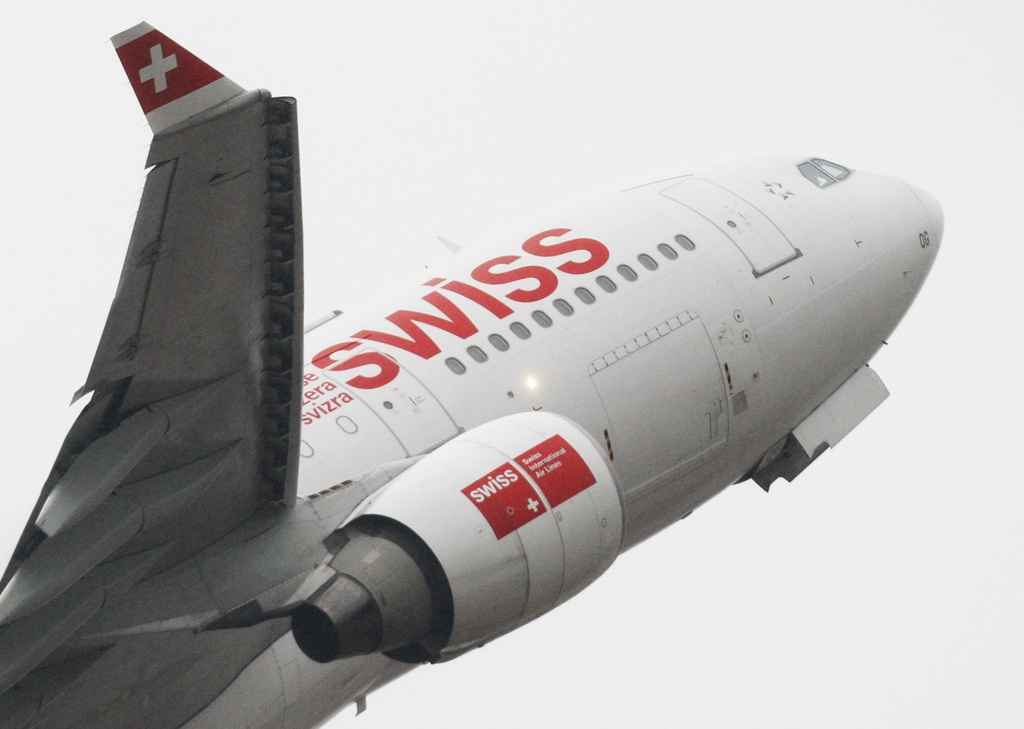


You can find an overview of ongoing debates with our journalists here . Please join us!
If you want to start a conversation about a topic raised in this article or want to report factual errors, email us at english@swissinfo.ch.